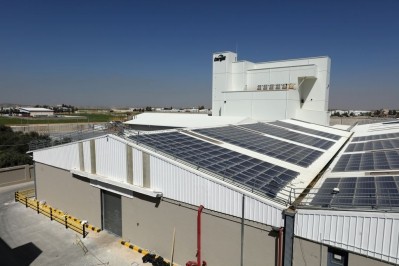Reports from GFFC
‘Carrot and stick’ needed to seize opportunities while keeping regulators at bay

Is there really a revolution taking place in feed and agriculture? Industry leaders often say that this is the case, backed up by suppliers of products and services that they claim are “revolutionary” and offer “unprecedented results”. At the same time, researchers warn of a “sea-change” in social and environmental matters.
Transparency is super-important.
Joe Stone, enterprise leader, Cargill Animal Nutrition (CAN) and corporate senior VP, Cargill
For one of the best known of these leaders, Cargill’s Joe Stone, it’s not so cut and dry. Instead, the industry is still charting a tentative course through the massive changes brought about by product and technology innovations, pressures from a growing population and the growing need for sustainable practices.
“I’d say we are in experimentation mode. We are trying to do everything we can now to sow those little seeds so they can take hold.” said the American multinational’s executive vice-president of animal nutrition and chief risk officer at the conclusion of a recent event in Bangkok organised by IFIF.
Demand among feed buyers to balance the need for productivity with health while reducing its emphasis on pharmaceuticals, for example, will change the food system fundamentally. How Cargill addresses this in the coming decades will depend a great deal on which of these seeds take hold now.
Stone says these sea-changes will provide countless opportunities, though he stresses that the industry should not be fooled into believing that such opportunities come without hurdles to navigate.
One of the biggest issues the global industry is facing now is that while food is plentiful, it’s not always in the places it’s needed, presenting huge challenges from food waste, pollution and hunger. Some figures belief the onus in now on regulators to judge new technologies and processes and understand the impact these could have on people and the planet.
Policy stick
Berhe Tikola, director of animal production at the UN's Food and Agriculture Organisation (FAO), says regulation and policymaking are just as important to help feed a changing world as developments in formulation and biotechnology. But regulators and major companies should work together to tease the wider industry into the right direction.
By using a “policy stick”, regulators can put an end to unsustainable practices while making it easier - the carrot - for suppliers to quickly adopt newly developed and additives and methods, for example.
“But the carrot and the stick have to be put together," he said.
Consumers need to know where and how the food was produced, said Dr Tikola.
By this he means feed companies should be more actively transparent in demonstrating how the most efficiently and sustainably produced inputs have a direct impact on those at the end of the value chain.
Consumers in a number of countries have increasingly voted with their feet to show their distaste for antibiotics and growth agents. Equally, they could demonstrate their approval for natural inputs if only they were well enough informed.
When consumers and producers play their parts well, the food regulators will “remain jobless,” the Ethiopian added.
Transparency
This new level of transparency will be the “currency” companies like Cargill will use to speak to customers, according to Stone.
“That transparency is super-important because we’ve got to maintain the ability to do what we do best, which is to produce food”, rather than being forced to focus on the capriciousness of regulators.
"From a policy perspective, regulators tend to dwell on the challenges, the risks. But there is a strong business case for industry to take the lead here and focus on the opportunities.”

















